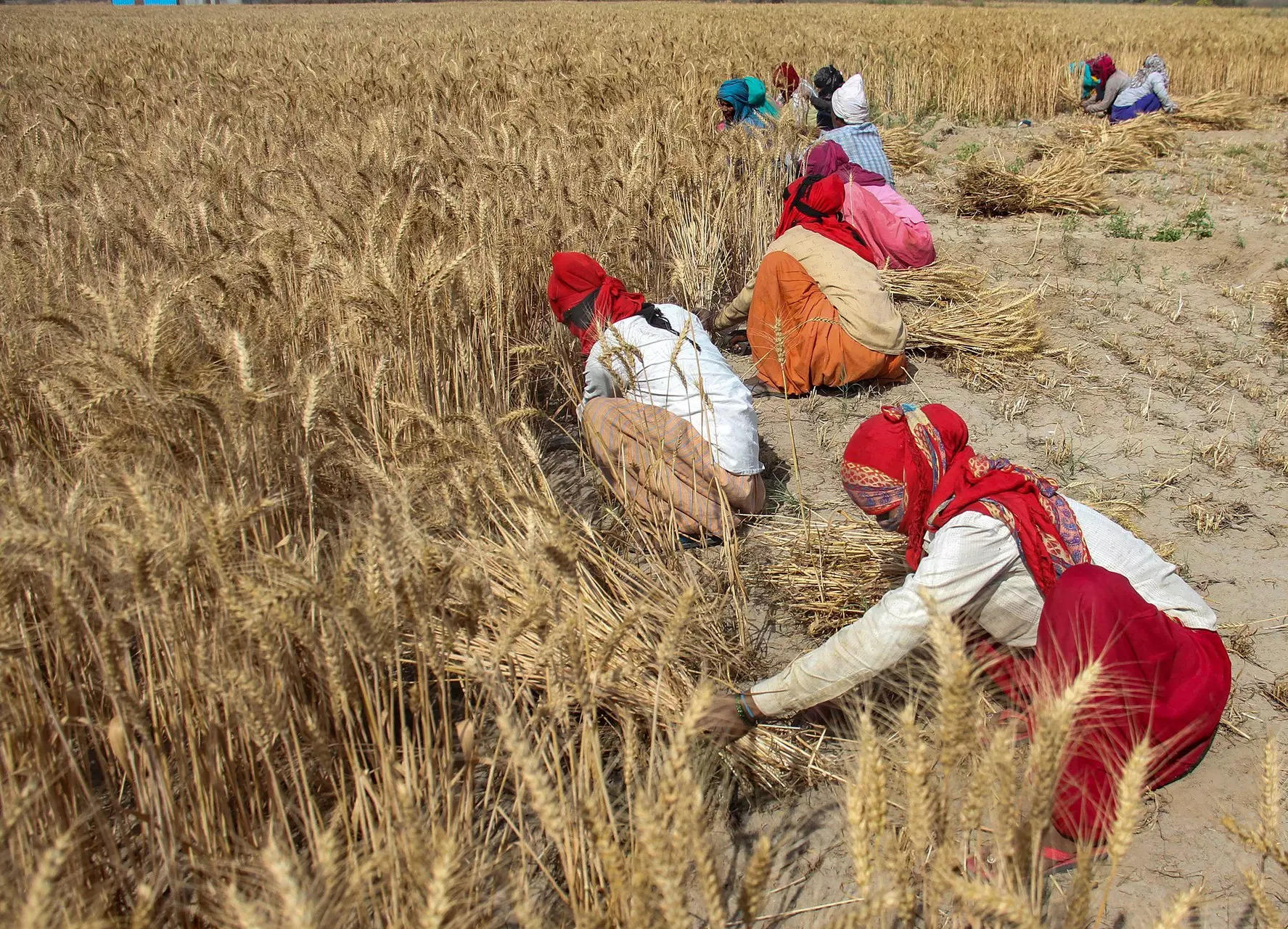
[ad_1]
India, the world’s greatest wheat client and grower after China, banned exports in 2022 and is eager to bolster shares and tame costs that surged after dry climate damage output in 2022 and 2023.
Rising wheat costs pressured the authorities to promote report portions to spice up native provides, resulting in a drawdown in reserves important for the world’s greatest meals welfare programme, which entitles practically 800 million to free grain.
The federal government has requested non-public merchants to avoid wholesale markets the place farmers often promote their produce to FCI or non-public merchants, mentioned merchants and authorities sources, who declined to be named as they weren’t authorised to speak to the media.
The federal government informally requested non-public merchants to keep away from shopping for wheat at the least in April, the sources mentioned, its first such steering since 2007. Wheat procurement begins truly fizzling out after mid-Might.
“We aren’t going to purchase in April. We’ll wait till Might. Apart from processors and small merchants, everyone seems to be more likely to observe the federal government’s lead,” mentioned a Mumbai-based dealer with a worldwide commerce home. Merchants energetic in India’s grain markets embrace Cargill Inc, Hindustan Unilever Ltd, ITC Ltd, Louis Dreyfus Firm and Olam Group. The federal government has requested the highest wheat-growing states to make sure that non-public merchants don’t get in the best way of FCI’s plans to purchase at the least 30 million metric tons this 12 months, the sources mentioned.
Most merchants are more likely to adjust to the directive to keep away from the federal government reimposing a restrict on the quantity of wheat they will maintain which expired on March 31, merchants mentioned.
New Delhi has already requested merchants, main retailers and meals processors to declare wheat shares each Friday from April to stop hoarding and value spikes.
In 2023, FCI purchased 26.2 million metric tons of wheat from native farmers, under its goal of 34.15 million metric tons.
Due to final 12 months’s decrease purchases, wheat inventories in authorities warehouses fell to 9.7 million metric tons at first of March, the bottom since 2017.
Decrease wheat inventories are inclined to stoke open market costs.
Regardless of falling inventories, New Delhi has resisted requires wheat imports as abroad purchases are inclined to anger farmers who type an influential voting bloc.
Tens of millions of Indians will vote within the parliamentary election, which might be held from April 19.
India’s decrease wheat shares might pressure New Delhi to import 2 million metric tons of the grain this 12 months, in response to a United States Division of Agriculture report final week.
FCI is targeted on Uttar Pradesh, a prime producing state which has traditionally contributed lower than 2% to FCI’s wheat procurement, with the state authorities asking railways to not present freight vehicles to large merchants in April, the sources mentioned.
Uttar Pradesh has requested native authorities to make sure that large merchants don’t get to purchase massive portions of wheat, in response to a authorities letter addressed to district officers and seen by Reuters.
FCI not too long ago began shopping for new wheat from farmers at a state-set 2,275 rupees ($27.29) per 100 kg towards open market charges of round 2,500 rupees.








